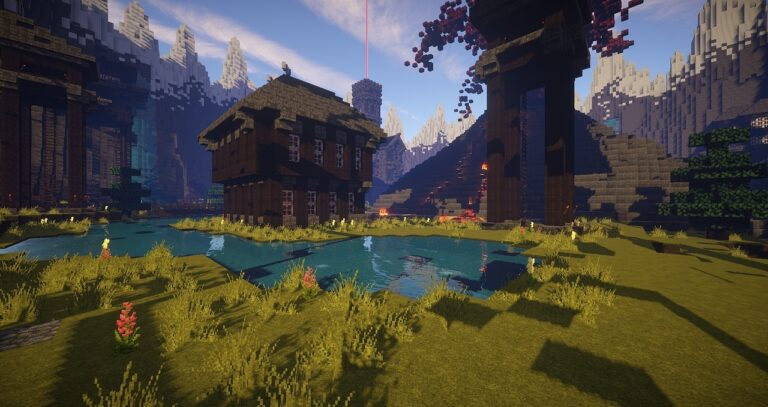
Minecraft, a game that has captivated millions of players worldwide, is more than just a digital playground. Its blocky landscapes and infinite possibilities for creation are not only entertaining but also offer a treasure trove of psychological benefits. From enhancing creativity to promoting problem-solving skills, let’s dig deep into the cognitive rewards of wielding virtual pickaxes and constructing pixelated realities.
Cultivating Creativity, One Block at a Time
At the heart of Minecraft is the boundless opportunity to create. With an array of materials and an open world at their fingertips, players are the architects of their own digital destinies. This unrestricted environment encourages a form of creative expression that is unfettered by the constraints of the physical world. Building elaborate structures or crafting intricate cities from scratch serves as an exercises for the imagination, akin to playing with an endless supply of digital Lego blocks. Such freedom to experiment and innovate can enhance lateral thinking and fuel the ability to devise novel solutions to problems both in and out of the game.
The Social Fabric of Online Collaboration
Multiplayer modes in play Minecraft unblocked create a virtual social arena where players can engage and interact with each other. This digital interaction can be particularly beneficial for those who might find face-to-face socialization challenging. By working together to achieve common goals, such as building a complex structure or surviving against the game’s menagerie of nocturnal creatures, players develop teamwork and communication skills. The game becomes a sandbox not only for structures but also for social experiments, nurturing a sense of community and cooperation among players from diverse backgrounds.
A Respite from Reality: Stress Relief and Relaxation
Amidst the hustle and bustle of everyday life, Minecraft offers a serene escape where the only pressing matters are the player’s immediate goals and the setting of the virtual sun. The game’s peaceful mode eliminates the threat of enemies, allowing players to focus on the meditative act of construction and exploration. The repetitive nature of mining and building can induce a flow state, a psychological phenomenon where a person is fully immersed in an activity, providing a mental break that can alleviate stress and promote overall well-being.
Fostering Resilience Through Challenge and Failure
Despite its tranquil potential, Minecraft also presents its players with challenges and opportunities for failure. Survival mode, with its resource management and lurking dangers, teaches players to plan strategically and think on their feet. The game’s inherent trial-and-error approach to construction and exploration encourages a mindset of resilience. When a meticulously built structure is destroyed by an exploding Creeper, for example, players learn to cope with setbacks and bounce back, a valuable lesson in adaptability and persistence that is applicable to real-world situations.
In conclusion, Minecraft’s pixelated world serves as a gateway to developing a plethora of cognitive skills and emotional benefits. By engaging with this seemingly simple game, players of all ages can reap rewards that extend far beyond the screen. Whether through fostering creativity, building social skills, providing a stress-relieving haven, or teaching resilience, Minecraft shows us that sometimes, the best learning tools come block by block.